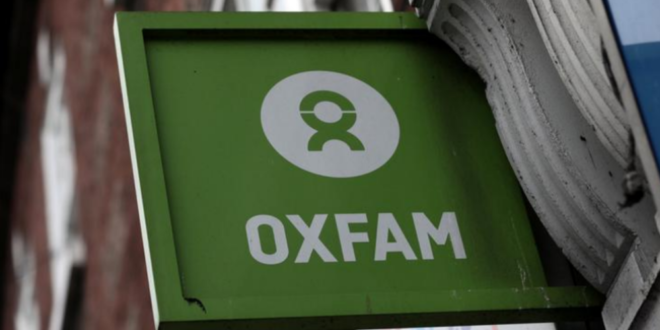Oxfam called on the International Monetary Fund to “allow countries more flexibility on inflation and deficit targets and move the negotiations into the public discourse, fully supporting them with open data.”
She also called for “setting targets for social spending in place of minimums that can be increased rapidly through various forms of wealth taxes and other progressive measures, rather than simply creating space for further privatizations and cuts elsewhere.”
A new analysis by the organization, “The IMF’s Social Spending Floors: A Fig Leaf for Austerity?” their austerity policies that instead force countries to cut public finances.”
According to the report, the “social spending floors” of the International Monetary Fund encouraged an increase in inflation-adjusted social spending by about $1 billion during the second year of loan programs compared to the first year, across 13 participating countries where data is available. By comparison, the IMF’s austerity campaign has required most of those same governments to “cut over $5 billion in government spending over the same period.”
more effective
“This suggests that the IMF has been four times more effective in getting governments to cut their budgets than it has been in ensuring minimum social investments,” said Amitabh Behar, Interim Executive Director of Oxfam International.
The organization notes that “the International Monetary Fund’s social spending floors, which it organized in the Social Spending Strategy for 2019, are now proving to a large extent inadequate, inconsistent, or even ignored,” noting that “this contributes to the threat of a lost decade of development.” ».
Very worrying
“This is very worrying and disappointing, given that the International Monetary Fund has urged countries to build back better after the pandemic by investing in social protection, health and education,” Behar considered.
He continued, “Of the two billion people who suffer the most from the effects of austerity cuts and the pressure of social spending, we know that it is women who always bear the greatest burden.”
Oxfam analyzed these components in all of the International Monetary Fund loan programs agreed with 17 low- and middle-income countries in 2020 and 2021. It found discrepancies between countries. There is no standard or transparent way to track progress and many of the minimum targets were inadequate.
For example, based on the available data, there is no minimum social spending among the 17 countries currently sufficient to cover the cost of achieving the World Health Organization’s goal of reaching the sustainable development goal for health, let alone goals in other areas such as education, according to the report.
The report pointed out that “the minimum limits agreed upon by the International Monetary Fund with Chad, Cameroon, Jordan and Madagascar mean that the social spending targets set in the International Monetary Fund program have actually decreased by 3-5% over the course of their loans, and this indicates that austerity devours social spending, which is It is very disturbing.”
And the report continued: “In 11 cases where countries showed a nominal increase in their social spending limits, it appeared that inflation was not taken into account. When Oxfam did this, their rates of increase were significantly slower and, in three cases, they actually decreased.”
loan programmes
The report notes that “loan programs are also largely blind. Only four borrowers, Costa Rica, Gambia, Jordan and Moldova, have shown substantial considerations of gender issues in IMF loans, and in 13 cases the information was very limited and in Suriname it was completely absent.
Oxfam analyzed 63 of the 124 social garden conditions for which implementation data was available, and found that only 65% (41 of 63) had actually been implemented. The Democratic Republic of the Congo and Madagascar did not meet anyone. Only Jordan has met all social spending limits.
In contrast, these countries implemented 85% of their austerity goals. Countries are struggling to meet minimum social spending, which Oxfam believes is “partly because they have had to make budget cuts for fear of deferring tranches of their loans”.
“To make matters worse, these social floors have become more like ceilings,” Behar said.
“While disappointingly enough, half of the 17 countries we analyzed have already achieved the social spending threshold, only two have spent 10% more than they agreed to with the IMF,” he added.
IMF programme
“The IMF program is not living up to its potential,” the report said. These floors barely protect social spending and do not appear to have had much effect in reducing inequality within countries.
“While the Social Expenditure Floors initiative retains its original urgency and promise, it is undermined by the worst effects of austerity, which the IMF is pursuing with much greater enthusiasm,” Behar said.
According to the report, the International Monetary Fund has made some encouraging improvements in attention to social protection, health and education, but it needs to do more to avoid “repeating the mistakes of the past.”
 Media ININ Economy We Trust
Media ININ Economy We Trust








